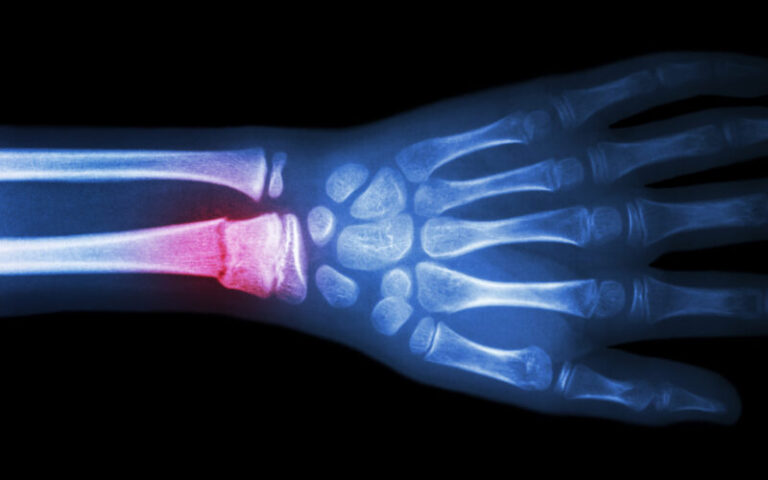When Being an Empath is Hereditary
Empathy helps us bond with people and acknowledge their feelings. But, it also makes us overwhelmed with our own emotions.
Some days, we can’t spend a single minute without thinking about the homeless puppy we couldn’t help.
Other days, we’re strapped to our bed, strangled by our past traumas.
So, what are the forces that make us such emotionally receptive beings?
Is it genetics that makes us empathize with others? Or are their environmental factors underplay?
Most research suggests that Empathy is a polygenic trait, i.e., part genetic and part environmental.
Some factors that play a role in shaping our empathic abilities include:
Empathy Can Be Hereditary Because of Temperament
Some babies are born with sharp sensibilities. They have an almost instinctual vein for bleeding Empathy.
You notice this at the time of their birth. The littlest things tick them off.
Slight changes in the lighting, a harmless gesture, or an untoward sound dilates their eyes and sends them crying for their parents.
Such kids have Empathy in their bones. Later on in life, when they grow up, their emotional perceptibility only gets better.
If a friend tries to hide their sadness from them, they rush to provide support.
Consequently, they develop a profound respect for their surroundings and the people that make them.
Some Empaths Are Hereditary
Some types of sensibilities are hereditary.
Children who have high-functioning empathic parents are known to have “hereditary empathy.”
Recently, a study showed investigated Empathy in twins. In the study, fraternal and identical twins were exposed to a hurting adult.
The researchers found that the identical twins acted similarly compared to their fraternal counterparts whose responses were more random.
This indicated that Empathy might have genetic roots.
The study also revealed women have more developed empathic qualities than men.
However, genetic variants may not be responsible for this difference.
This is mainly because the researchers didn’t find any significant difference between the gene pool that determined Empathy in men and women.
From this, you can deduce that sexual variations in Empathy are a consequence of other non-genetic factors, such as socialization and trauma.
Brain Mapping Has Found Empaths Can Be Hereditary.
Another research has found that Empathy can be Hereditary.
Dr. Hugo Critchley from the University of Sussex found that through brain scans that the right frontal insula is a crucial center for emotional cognition.
What he did find was that people with greater Empathy had more gray matter in their right frontal insula.
And the thicker the gray matter, the better the person is at reading feelings in themselves and others.
Another interesting biological finding is called the Von Economo neuron. Which is located in the anterior cingulate cortex and frontal insulas.
They are specialized cells, and they allow us to make quick, intuitive judgments or intuitions.
They enable us to know and understand things instantly without rational thought or any interference.
Trauma Can Increase Empathy
Anyone who’s gone through childhood abuse knows how heavy a burden trauma is to carry.
Trauma stops you from moving forward and getting the best out of your human potential.
However, despite trauma’s constricting nature, it does offer one silver lining—increased Empathy for your fellow humans.
Most psychologists claim that most empaths they’ve treated have had a history of abusive relationships, toxic friends, or alcoholic parents.
These kinds of experiences make a child more receptive to others. But, not without consequences.
If left untreated, trauma ultimately wears a child down and contributes to social isolation and other issues.
In trauma’s tight grip, children feel incapable of building a strong support network of loved ones, spiraling them down a dark abyss of negative behaviors.
Good Parents
Good things, such as supportive parenting, can also improve our empathic abilities.
When parents reward their kids for doing some good in the world, kids are positively reinforced to repeat these deeds of kindness.
This is understandable, considering most children look up to their parents and want to lead their lives in their footsteps.
So one easy way to find out if Empathy is hereditary is to see if your parents are empaths?
If not, are there any other blood relatives who are empathic?
Can You Heal As An Empath?
Whatever the reason behind our Empathy, we have to learn how to combat stress.
Unfortunately, we’re not pretty good at this kind of thing.
A jittery person or a rowdy crowd is all it takes to makes us act erratically and uncharacteristically.
At times like these, we’re unable to keep our calm and analyze the situation.
Our emotions immediately get a hold of us and dictate our actions. As a result, rationality jumps out of the window.
This shows how minimal our tolerance for sensory and emotional overload is.
However, there’s no reason to believe sensitive people can’t heal.
Even if you’ve experienced trauma at a very early age, you can seek help.
The first step is to accept that you’re different and that you deserve to feel safe in your mind and your skin.
Part of this requires saying “no” to others and putting yourself first.
When you muster the courage to reject people you think are a bad influence in your life, the healing process can start.
You can then rely on therapy, meditation, and a whole host of other healing treatments to center your being.
Final Thoughts
As an empath, your goal is to empower yourself.
There’s nothing wrong with being emotionally overcharged. The problem arises when your sensitivity becomes an excuse to hurt yourself.
Sooner rather than later, you have to realize that Empathy isn’t just a superpower; it’s also a responsibility.
You have to use your Empathy for self-acceptance and self-love.
This is only possible when you try to understand the origins of your empathic powers and make peace with who you are, instead of continually degrading your existence.
When empaths realize their true self-worth, they’re able to raise their vibrations and lift people who depend on them for support.
Otherwise, they risk becoming a burden and letting their loved ones down.







